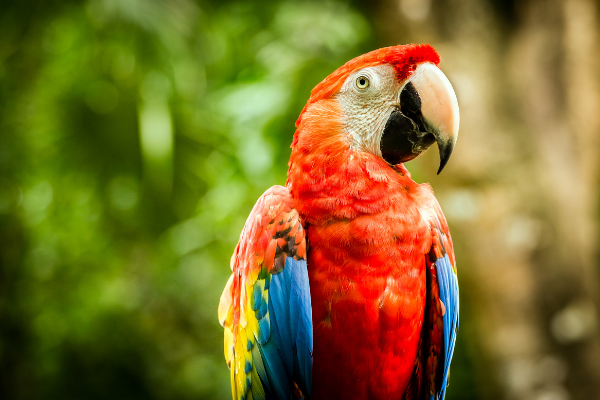Friends of Animals filed a lawsuit Aug. 3 against U.S. Fish and Wildlife Service in the D.C. district court because the agency failed to list a distinct population of scarlet macaws as endangered under the Endangered Species Act. A species clearly on the brink of extinction, there are only about 25 of the Northern Distinct Population Segment (DPS) of the southern subspecies of scarlet macaws remaining in Panama and 1,000 in Costa Rica.
“Scarlet macaws are quickly vanishing from the wild. One of the drivers behind their decline is people seeking to lock them in cage and put them on display as pets,” said Jennifer Best, assistant director for Friends of Animals Wildlife Law Program.
FoA’s challenge comes after FWS, in 2012, decided to list the Northern DPS of the scarlet macaw as endangered, which would protect the birds from the pet trade. Then in 2016, FWS threw logic and the best available science out the door and abruptly changed its decision to list the population as threatened.
“Threatened status continues to allow people to commercially trade them with little oversight or regulatory protections. It is time to recognize the harm this is causing and enact stricter protections for these stunning birds,” Best said.
The scarlet macaw is a member of the parrot family, with beautiful blue, yellow, and red coloring, and a wingspan of up to three feet. Scarlet macaws are found in the treetops of Central and South American forests. Unfortunately, the species is rapidly declining due to deforestation, habitat loss, as well as capture and poaching for the pet trade.
A scarlet macaw can be sold for as much as $5,000. Captivity for scarlet macaws is detrimental; scarlet macaws are incredibly social birds, living in pairs or groups, and mating for life. Moreover, the majority of scarlet macaws do not survive after being captured from the wild.

